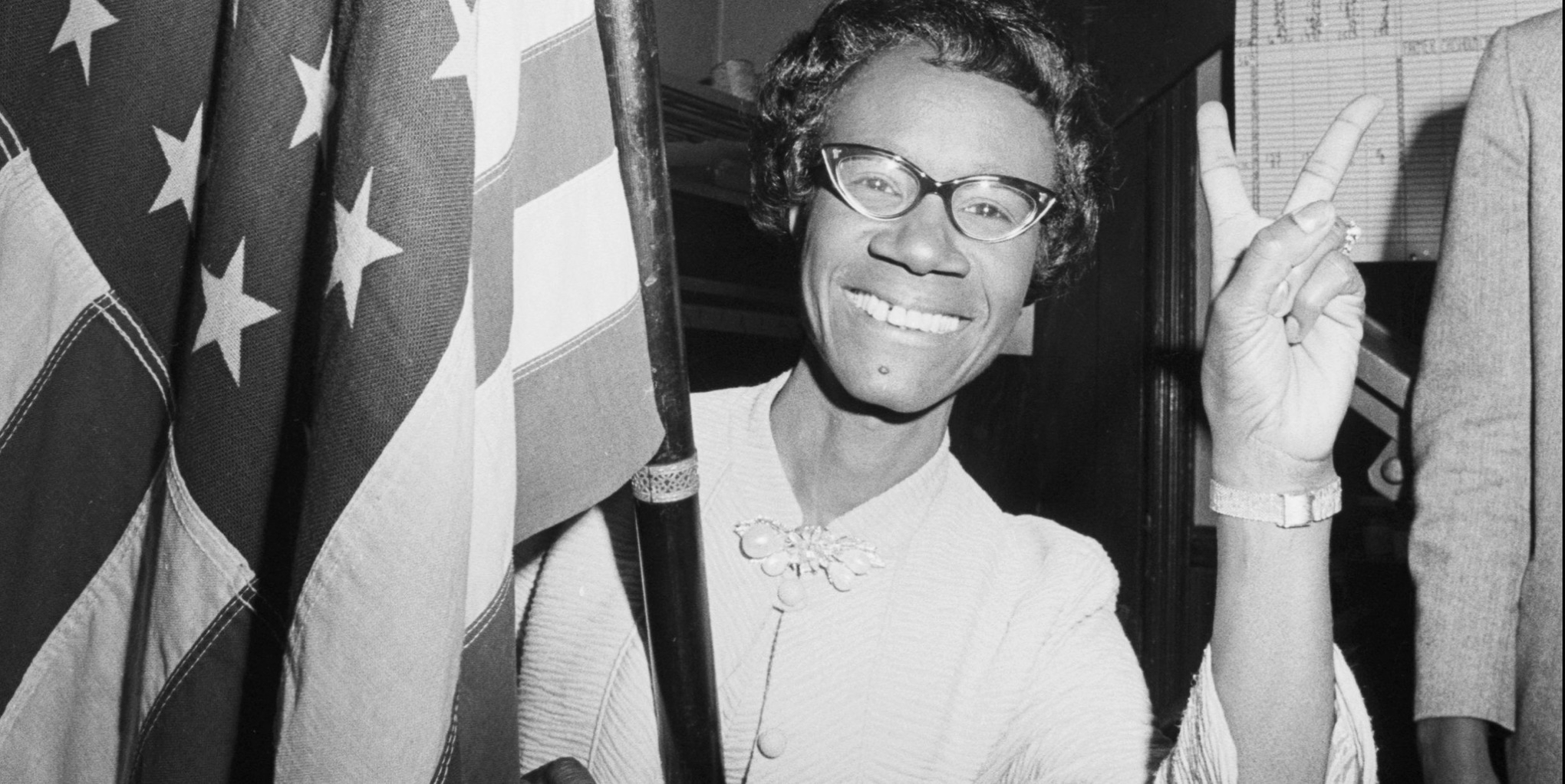She’s played by Uzo Aduba in FX’s Mrs. America.
FX’s Mrs. America premiered on Hulu on April 15.
The show stars Uzo Aduba as Shirley Chisholm, who was the first Black woman to be a member of congress.
We delve into facts about Chisholm’s life, including memorable quotes, what Mrs. America got right and wrong, and the park created in her honor.
FX’s Mrs. America tells the story of feminist icon Gloria Steinem—and in contrast, conservative Republican leader Phyllis Schlafly, who was actively working against the ratification of the Equal Rights Amendment (ERA). But perhaps no one had quite as many historical firsts as Shirley Chisholm, who is depicted in the series by Uzo Aduba.
The New York congresswoman, who died in 2005, was the first Black woman to run for the U.S. presidential nomination in 1972. And we see just a small peek at her historic story in the series’ third episode, “Shirley.”
“I think there have been countless women women of color who have had a huge piece to do with the forward progression of this country,” Aduba tells OprahMag.com. “And I would like for her to hold the space that I believe she deserves, because these names like a Stacey Abrams or Kamala Harris, a Hillary Clinton, an Elizabeth Warren, an Amy Klobuchar, a Geraldine Ferraro, and Nancy Pelosi, all of these women—regardless of party—have a thank you.”
Below, we delve a bit deeper into Chisholm’s life, from some of her most memorable quotes to whether or not she, Steinem, and Bella Abzug were at odds in real life, as it’s shown in Mrs. America.
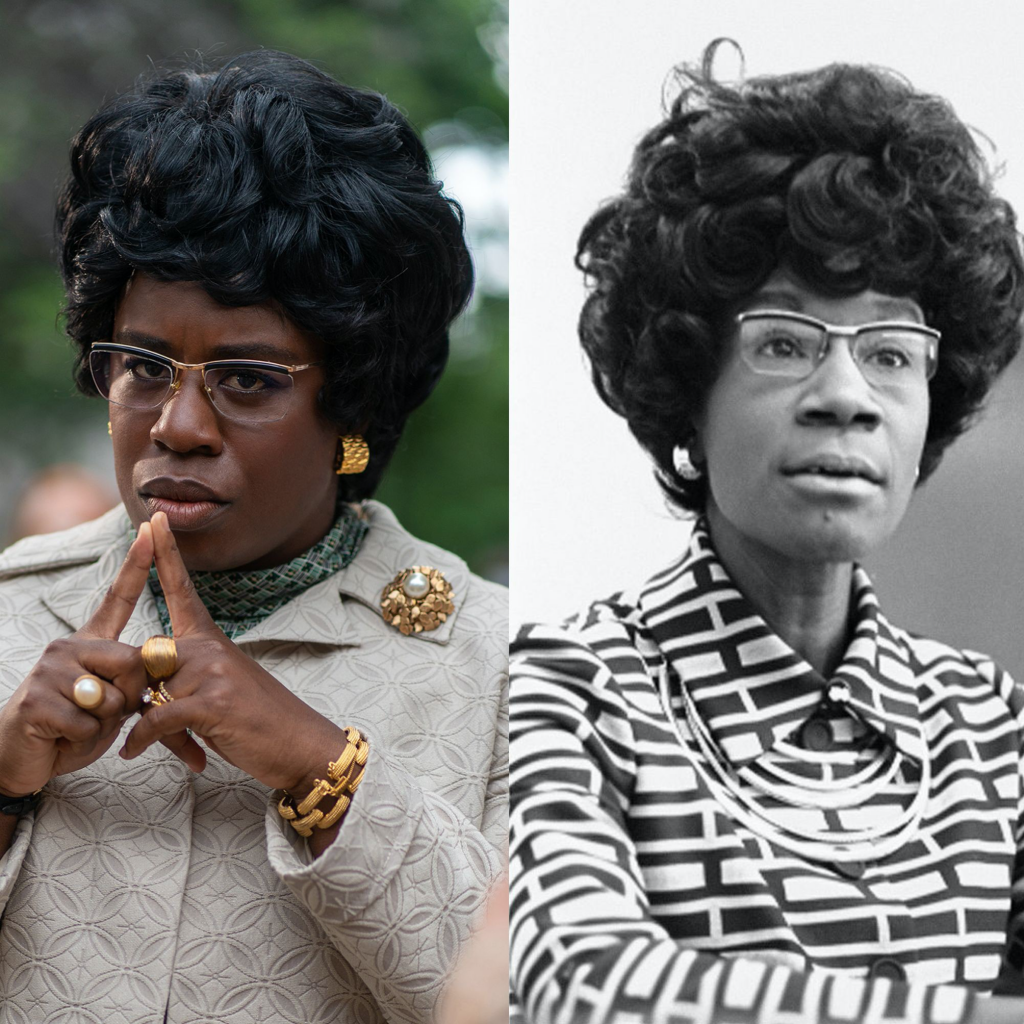
Shirley Chisholm was an educator before becoming the first Black woman in Congress.
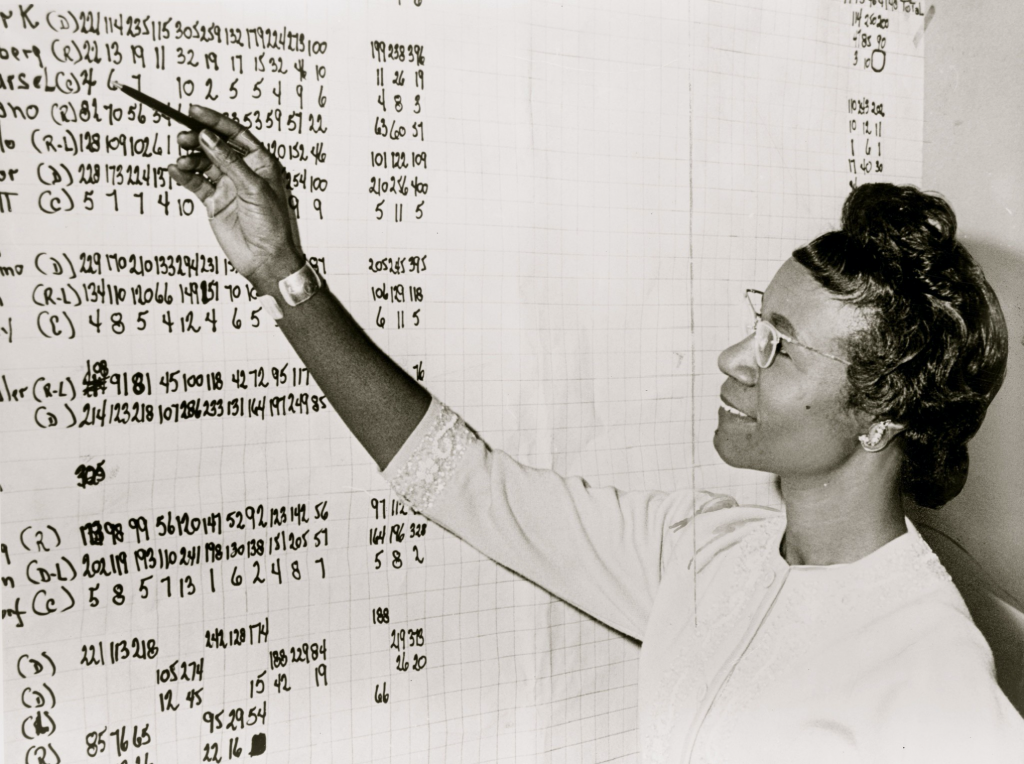
Born to West Indian immigrants, the Brooklyn native—a Brooklyn College and Columbia University graduate—was an educator before she was a politician.
Chisholm was a nursery school teacher, eventually working her way up as the director of two daycare centers. By the early 1950s, she served as director of the Hamilton-Madison Child Care Center, until 1959 when she became educational consultant for New York City’s Division of Day Care. It was in 1969 that she was elected congresswoman of the new district in her Bedford-Stuyvesant neighborhood; that historic campaign birthed her famed slogan “unbought and unbossed,” according to the United States House of Representatives.
She was the only woman elected in her freshman class and would go on to serve for seven terms.
Chisholm was a bold, outspoken politician.
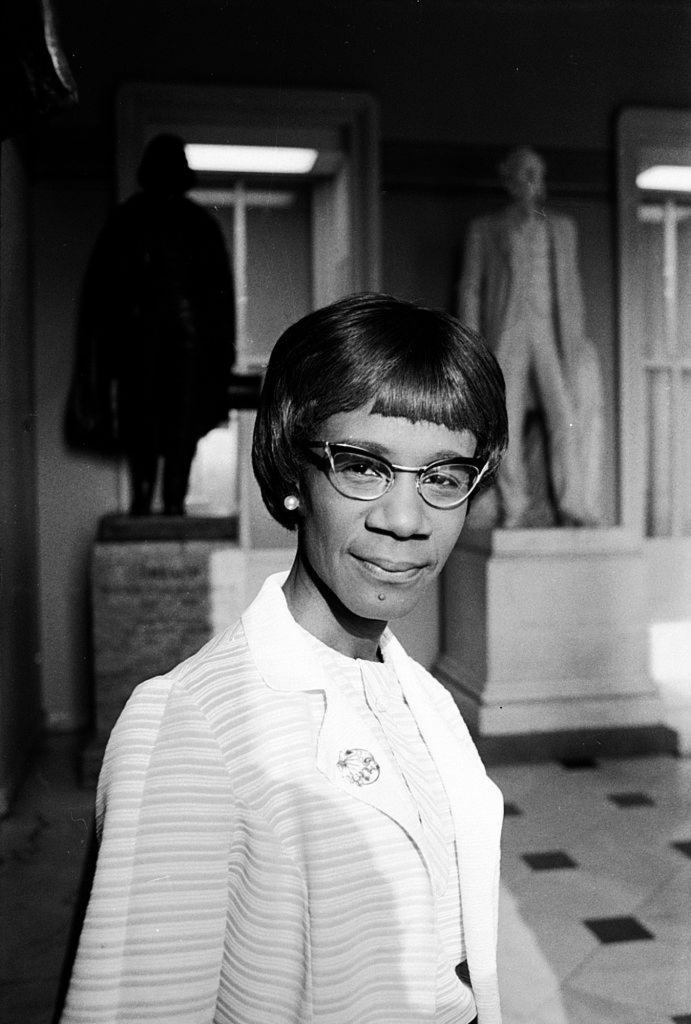
Chisholm made it clear from her earliest days as a congresswoman that she would not stay silent when it came to her beliefs. (Her first speech on the House floor was about her disdain for the Vietnam War.) And despite being assigned to the Committee on Agriculture, she publicly announced her dissatisfaction with the appointment and was re-placed to the Veterans’ Affairs Committee. To this, she apparently said: “There are a lot more veterans in my district than trees,” according to the House website.
“She was unafraid of anybody,” then-intern and Chisholm’s student coordinator, Robert Gottlieb, told Smithsonian Magazine.
The politician was also the first Black woman to serve on the Rules Committee in 1977, and was a founding member of both the Congressional Black Caucus and Congressional Women’s Caucus.
Her presidential campaign put her on the national stage.
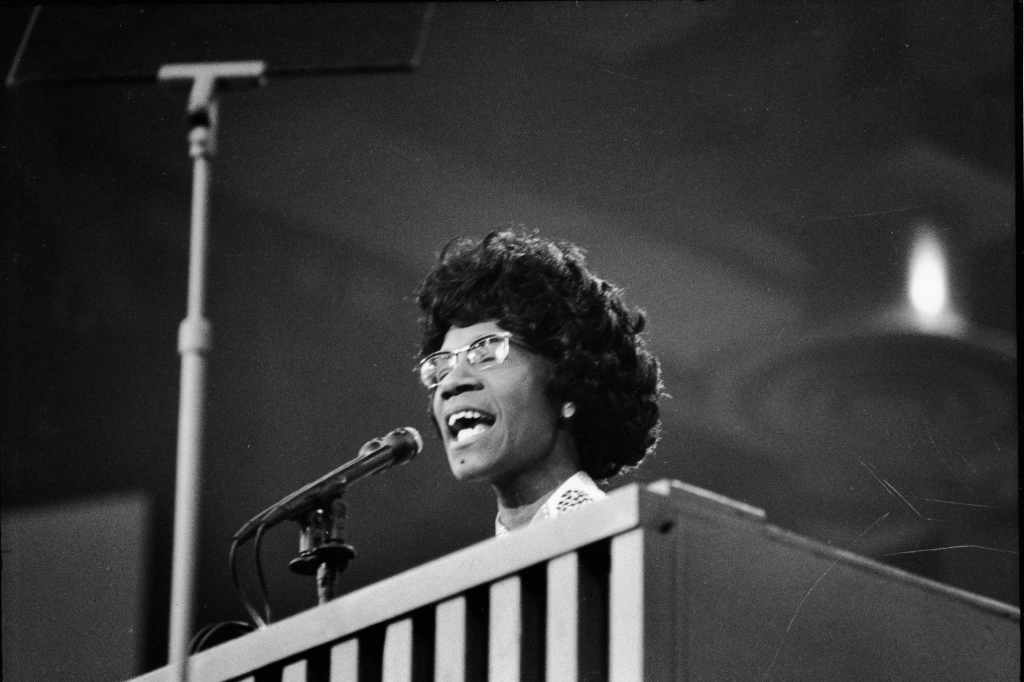
As depicted in Mrs. America, Chisholm unsuccessfully ran for president in 1972, but as a feminist with unwavering and outspoken stances on civil and women’s rights, and support for the working class, her campaign was definitely not one to ignore. That much was clear from her stirring speech in which she announced her candidacy.
“I am not the candidate of Black America, although I am Black and proud,” she said. “I am not the candidate of the woman’s movement of this country, although I am a woman and I am equally proud of that.”
The congresswoman was “unbought and unbossed” personified, with buttons of her face decorated with the Venus symbol of the feminist movement and a defiant campaign that pushed on despite the unsupportive male members of the Congressional Black Caucus.
Prominent African American activists and politicians Julian Bond, Carl Stokes, Jesse Jackson, and John Conyers Jr. each put their support behind her white, male opponent George McGovern. Smithsonian Magazine cites sexism and the disbelief that a woman could win against President Nixon—who was in office at the time—as the reason for their indifference. The House points to her male colleagues feeling betrayed by her campaign stances that they felt advocated for “women, Hispanics, white liberals, and welfare recipients.”
To this she reportedly said, “Black male politicians are no different from white male politicians. This ‘woman thing’ is so deep. I’ve found it out in this campaign if I never knew it before.”
Even though she didn’t get the nomination, Chisholm gained national recognition, as she appeared on 12 national primary ballots and received an impressive 10% of delegate votes.
As portrayed in Mrs. America, during her campaign, Chisholm did feel at odds at times with fellow leaders of the feminist movement.
“It is quite understandable why Black women in the majority are not interested in walking and picketing a cocktail lounge which historically has refused to open its doors a certain two hours a day when men who have just returned from Wall Street gather in said lounge to exchange bits of business transactions that occurred on the market,” she said in 1974, according to The New York Times. “This is a middle-class white woman’s issue.”
Though she co-founded the Congressional Women’s Caucus with Rep. Bella Abzug, Gloria Steinem, and others, the series is accurate when showing the tension between Chisholm and Abzug, played by Margo Martindale. The late Abzug endorsed George McGovern for the presidency instead, which caused “strained relations” between the two women.
As for Steinem, in a 2019 New York Times letter to the editor she denied that she abandoned Chisholm during her 1972 presidential run, calling the notion “hurtful and not true.” She wrote:
“I supported her candidacy in the 12 states in which her name was on the ballot. In those states and others, I raised money for her national campaign, which single-handedly took the “white male only” sign off the White House door.”
Chisholm was married twice.
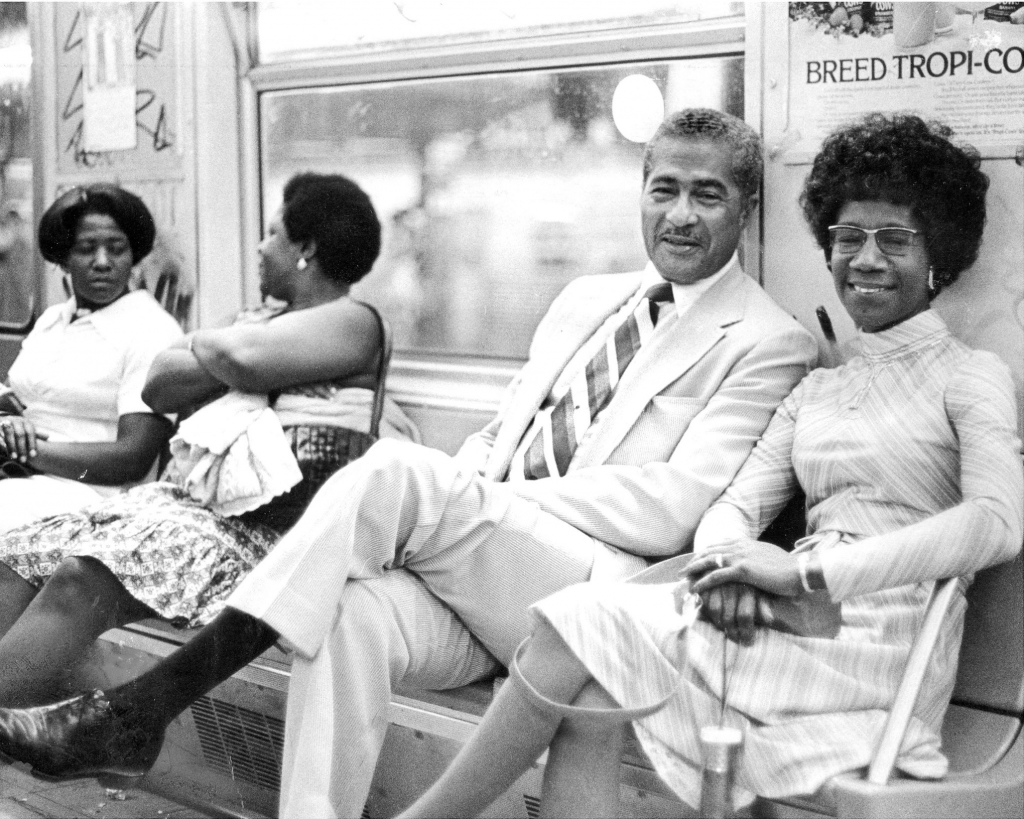
Chisholm first married private investigator Conrad Q. Chisholm, who she was married to for 28 years before they divorced in 1977. She married her second husband, New York legislator Arthur Hardwick, Jr., that same year. Hardwick, Jr. is who we see portrayed in Mrs. America.
Their union lasted until his death in 1986. Chisholm never had any children.
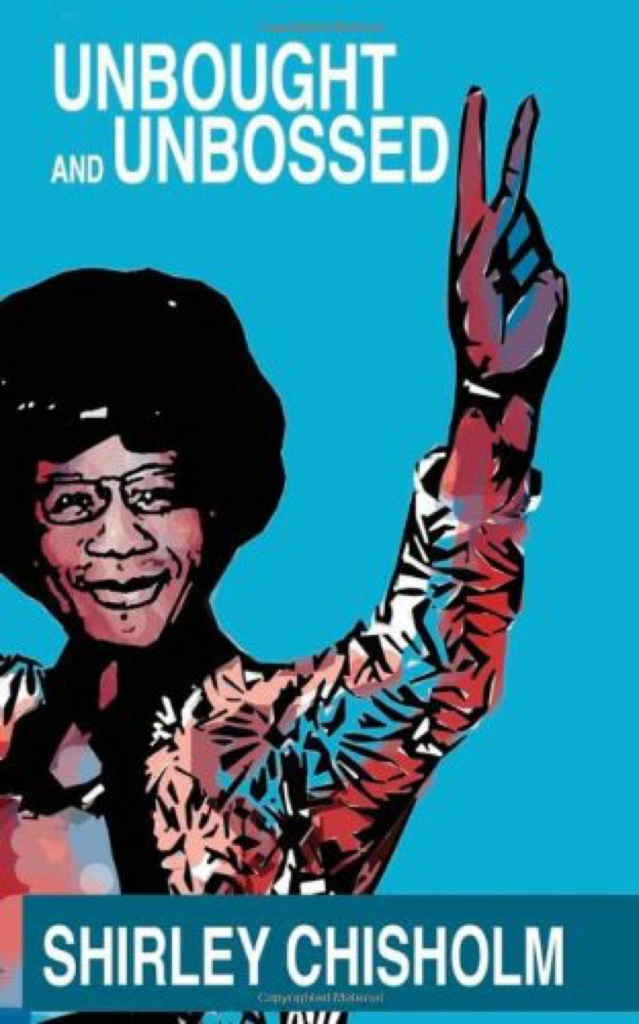
Viola Davis will play Shirley Chisholm in an upcoming film.
If you want more in-depth information about the famed politician’s life, she wrote an autobiography called Unbought and Unbossed in 1970. There’s also 2013’s Shirley Chisholm: Catalyst for Changeby Barbara Winslow.
Her story is also making its way to the screen again, as Viola Davis is set to play her in Amazon Studios biopic The Fighting Shirley Chisholm.
She has a national park named after her.
After suffering several strokes, Chisholm died at the age of 81 in January 2005. In 2019, Shirley Chisholm Park opened in Brooklyn, the largest state park in New York City. And forever adding firsts to her resume—even in death—she’s currently set to have the first-ever female historic figure to have a monument built for them in Brooklyn.
If you want more in-depth information about the famed politician’s life, she wrote an autobiography called Unbought and Unbossed in 1970. There’s also 2013’s Shirley Chisholm: Catalyst for Changeby Barbara Winslow.

